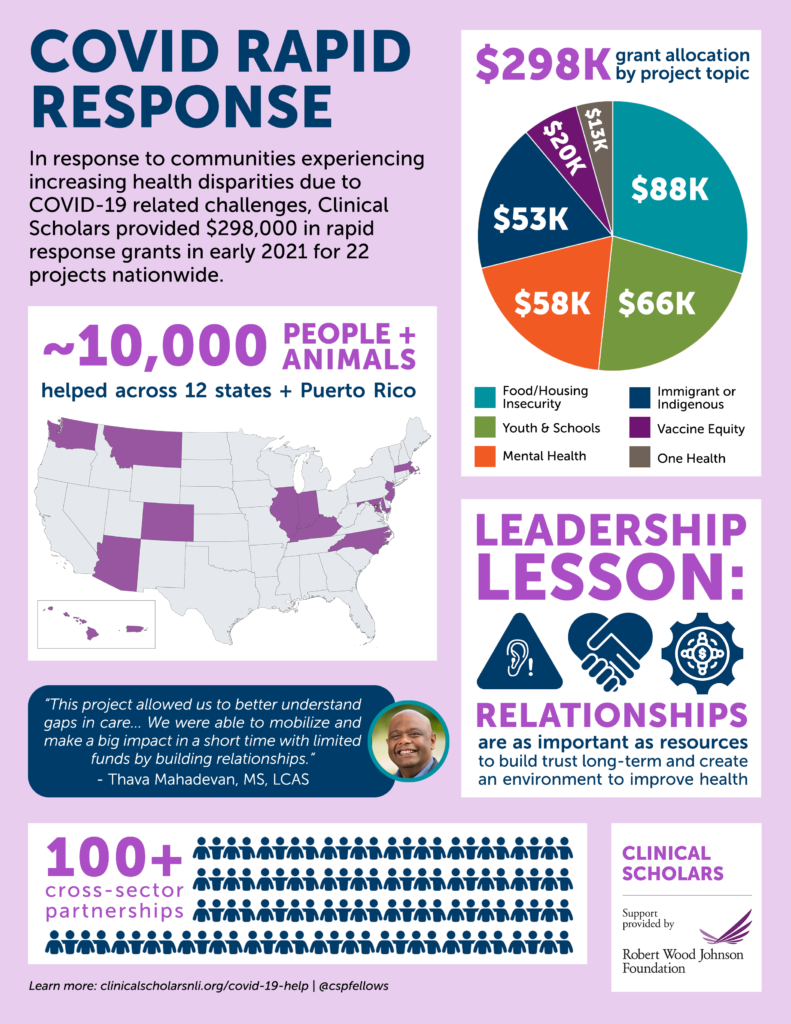Community Impact: Infographic
Since early 2021, rapid response grants have helped 22 communities during COVID-19.
The rapid response grants provide funding to address health equity challenges in the United States and territories that were worsened by the pandemic. So over 60 Clinical Scholars Fellows used the grants to provide direct services, collect information to improve future responses to health crises, test pilot programs on health and other services’ delivery, and other efforts to help their communities.

10,000 people and animals helped
In less than 6 months, the 22 project teams served nearly 10,000 people and animals across 12 states and Puerto Rico. The help includes everything from health care to unhoused individuals and their pets to providing nutritious meals to those in need and even mobile vaccinations in rural areas.
$298,000 in rapid response grant funds
The grant opportunity opened to all Clinical Scholars Fellows and alumni. As a result, their proposals included a wide range of innovative approaches to COVID’s wicked problems including:
- Food and/or housing insecurity
- Youth and schools
- Mental health
- Immigrant or indigenous populations
- Vaccine equity
- One health
Relationships are as important as resources
Many Clinical Scholars Fellows shared how the increased opportunities to spend time with community members led to meaningful differences. For example, new and strengthened relationships lead to trust building which then leads to an environment where health can be improved long-term.
Over 100 cross-sector partnerships formed
These rapid response grants show how it takes strong partnerships between many stakeholders to achieve health equity. Certainly the typical challenges of building real-world collaborations across sectors were multiplied by the pandemic. However, Clinical Scholars Fellows receive training and tools during the program to apply systems thinking to their work. Most importantly, thanks to the initial grants these community projects are in the process of sustaining and scaling their work.
Raleigh, North Carolina